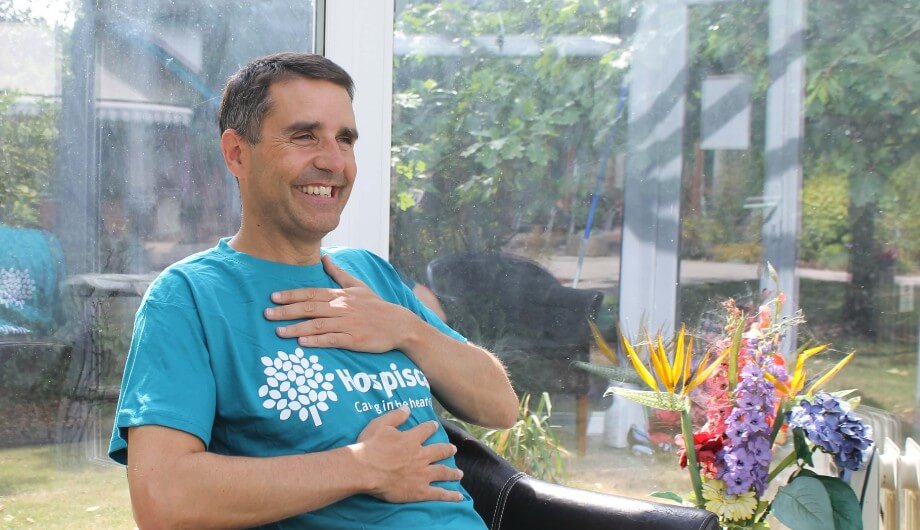If you or someone you know is struggling with body image changes, here are some ways you could try approaching it.
Be kind to yourself
Negative body image can affect the way we behave towards ourselves – so it’s doubly important to treat yourself with kindness. Spend time with supportive people and do things that make you feel good about yourself, such as a relaxing bath or spending time somewhere calm or special to you.
Sometimes, people with life-limiting illnesses feel guilty for worrying about body image when they’ve got ‘bigger things’ on their plate. Remember that it’s entirely valid to think about these things and you’re not alone in doing so.
Replace negative thought patterns
It’s natural to have some negative thoughts when your body image is affected by illness. But if this becomes a habit, it can have an impact on your confidence and mood, pushing you think more negatively overall.
With practice, you can learn to replace unhelpful thoughts about your body into more neutral or positive ones. Try writing down things you like about yourself and your appearance. Seeing yourself as a whole instead of concentrating on what you don’t like about your body is a skill that can be learnt.
If it feels like too much of a stretch to go from negative thoughts to positive ones, try reframing your negative thoughts as neutral ones first. Don’t feel you have to say “I love my body”. You might try thinking, “I feel strong today” or “My body gave me a great night’s sleep.”
Sometimes, a source of worry can be the questions and comments other people may have on your appearance. Try to keep in mind that people aren’t trying to be hurtful but often simply don’t know what to say, and consider having a response prepared to questions.
If you feel that these negative thought patterns are becoming overwhelming, you might like to try seeing a cognitive behavioural therapist to help you find coping techniques (other therapies are available!).
Make-up as mindfulness
If you are interested in make-up, grooming, skincare or fashion, don’t feel like that has to stop – it could make the world of difference to how you feel. It can be tempting to avoid looking at changes in appearance, but research shows that confronting these changes can actually help.
You might want to try out new cosmetics or a new look. YouTube is a great place to look for tutorials, and with the huge number of videos available there’s likely to be someone in the same situation as you.
Why not try approaching make-up, skincare or haircare routines in a mindful way? When putting on make-up or styling hair, try to bring awareness to each moment. Take the opportunity to focus on the task in hand – it’s about showing yourself that you matter.
You can find out more about mindfulness on the NHS website.
Top tips from our Director of Care, Tina
- Be informed
- Be kind
- Be your own best friend
“Sometimes, the things we tell ourselves about how we look are the kind of things we’d never dream of saying to a friend. Try treating yourself with the same kindness, supportiveness and understanding you’d treat a close friend. If you’re interested in body positivity check out @bodyposipanda on Instagram.”





